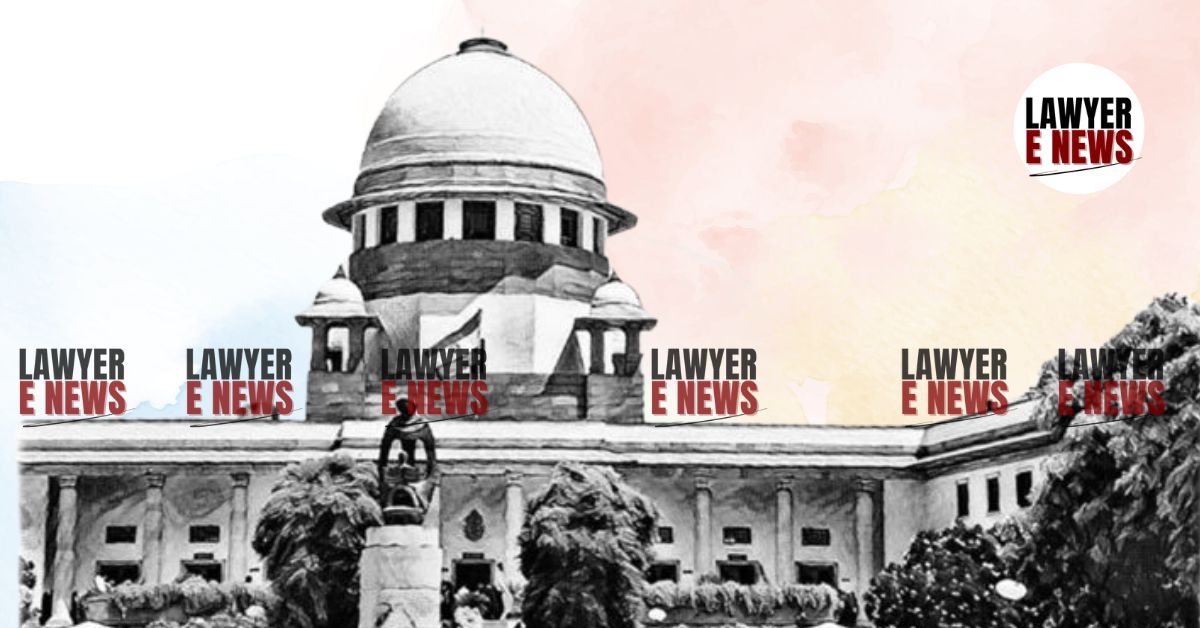-
by Admin
17 February 2026 4:27 AM



"If the Rules Permit and the High Court Decides, Raising Judicial Officers' Retirement Age to 61 Is Permissible": Supreme Court of India delivered a significant order in the case of Madhya Pradesh Judges Association v. State of Madhya Pradesh & Anr., Writ Petition (Civil) No. 819/2018. The Bench comprising Chief Justice of India and Justice Augustine George Masih clarified that there exists no legal bar to increasing the retirement age of judicial officers in Madhya Pradesh to 61 years, if the State Rules allow and the High Court so decides. This decision could lead to uniformity in retirement ages between government employees and the judiciary within the state and could have implications for other states as well.
The petition was filed by the Madhya Pradesh Judges Association, seeking parity in the retirement age of subordinate judicial officers with that of State Government employees. The key relief sought was:
“To issue a writ of mandamus or any other appropriate direction to enhance the age of superannuation of members of the subordinate judiciary in Madhya Pradesh to 62 years, in line with other State Government employees.”
However, the High Court of Madhya Pradesh, on its administrative side, had earlier rejected the association’s representation, citing the Supreme Court’s earlier order dated 21.03.2002 in W.P.(C) No. 1022/1989 (All India Judges’ Association & Ors. v. Union of India & Ors.), interpreting it as barring such enhancement.
The principal legal question was whether the High Court of Madhya Pradesh, in coordination with the State Government, could increase the retirement age of judicial officers, despite the previous judgment in All India Judges’ Association (2002).
The petitioners argued for equality in service benefits between judicial officers and other government employees, especially after the Madhya Pradesh Government raised the retirement age of its employees to 62 years.
The High Court had interpreted the 2002 judgment as a legal barrier to such an enhancement. However, the Supreme Court clarified this interpretation was misplaced, especially in light of recent developments involving the Telangana High Court.
The Supreme Court referred to its own order dated 23.11.2023 in I.A. No. 170936/2023 in WP(C) No. 643/2015, in which it allowed the Telangana High Court to increase the retirement age of judicial officers to 61 years under the Telangana Public Employment (Regulation of Age of Superannuation) Act, 1984.
“Permission as sought by the High Court of Telangana is granted… We clarify that the IA… is being allowed since the increase in the age of retirement would be beneficial to the judicial officers.”
Based on that precedent, the Supreme Court held: “We do not find that there should be any impediment in permitting the respondents… to enhance the age of retirement of the judicial officers working in the State of Madhya Pradesh to 61 years.”
The Court further clarified that: “If the rules framed by the State of Madhya Pradesh permit and if the High Court takes a decision to enhance the age of retirement… the same would be permissible.”
Direction to High Court of Madhya Pradesh:
Recognizing the importance of the issue and the pending representation, the Supreme Court issued a time-bound directive:
“The High Court of Madhya Pradesh, on its administrative side, would take a decision at the earliest and in any case within a period of three months from today.”
The writ petition was accordingly disposed of, along with all pending applications.
The Supreme Court’s order provides clear legal authorization to the High Court of Madhya Pradesh to reconsider and potentially raise the retirement age of its judicial officers to 61 years, aligning it with the retirement age of State Government employees. The Court expressly clarified that the 2002 All India Judges’ Association judgment does not preclude such a move, particularly when such enhancement is made within the framework of applicable rules and following a decision by the High Court on its administrative side.
Date of Decision: May 26, 2025
